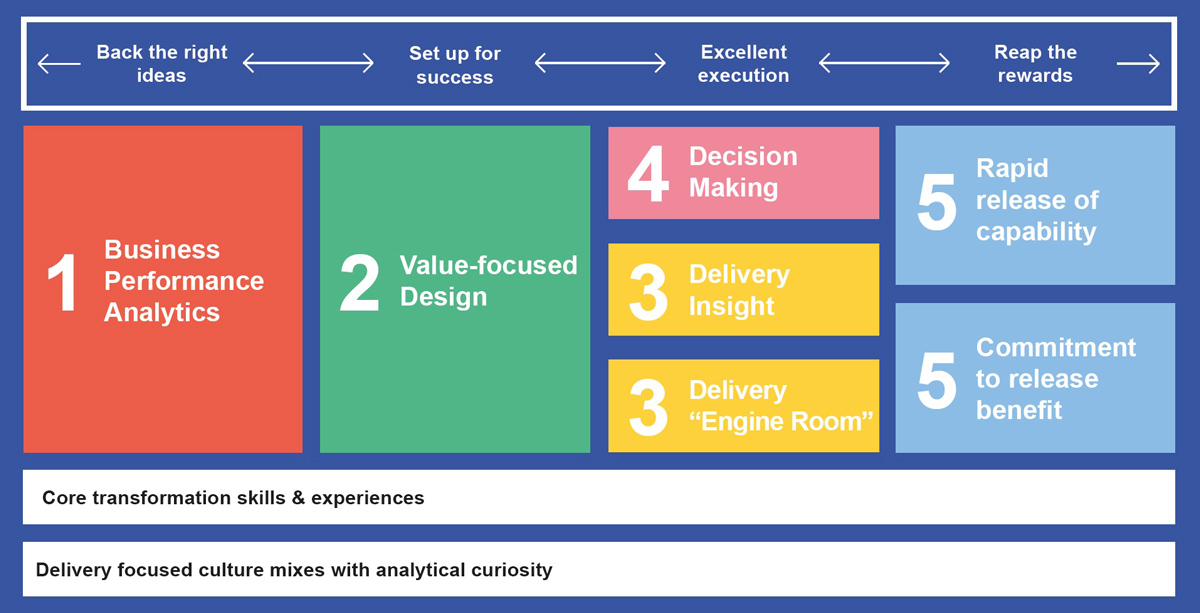ADVERTORIAL

Pip Peel
Chief Executive Officer, P2 Consulting
Businesses spend millions on big projects that do not deliver for years. But there is a better option, called P2 Adaptive Delivery®. It prioritises tasks and adds business value early.
Q: What is P2 Adaptive Delivery®?
A: For years, organisations have spent millions executing big transformation programmes that take years to deliver value. P2 Adaptive delivery® provides an alternative by balancing the best elements of traditional ‘waterfall’ methods around stability and scale, with trusted agile methods that bring pace and cultural benefits quickly. P2 adaptive delivery® is not simply a new framework; it represents a new attitude towards project management. Many large organisations, from finance to retail, are already adopting it.
Q: Is it really necessary?
A: Yes. Businesses are demanding more speed and certainty when investing in major projects. Every stakeholder wants to see a quick return on investment and lower delivery costs. This can only be achieved if risks are managed more effectively and business disruption is diminished.
Q: What’s the science behind the P2 Adaptive Delivery® framework?
A: It’s all about improving stakeholder confidence that a project will deliver maximum benefits. There are five key characteristics (see diagram):
- The business case is deconstructed to identify and prioritise which parts will add value and deliver benefits early
- The project design is de-coupled to show which components can be executed in isolation
- A flexible yet robust learning environment is implemented that drives predictability and reduces risk
- A Sense-Respond-Adapt approach is taken to hunt down problems early and build in high-quality and focused decision points so everyone remains engaged
- There is a commitment to building, testing and delivering outcomes incrementally and at pace.

Q: Why are you so confident that this third approach to business transformation is the way forward?
A: Organisations are craving a better way of managing and running major projects. They have to react to disruptors (think Amazon and Uber) and move quickly and act differently to get real value. They need a fresh approach to launching into new markets or unveiling new products.
Q: What are the key strengths of adaptive delivery?
A: It acts as a controlling ‘wrapper’ around both agile-based and waterfall-based methodologies. In a waterfall methodology, the ‘increment’ acts as a substitute for the end-to-end project with the key stages truncated within the timeline of that increment.
In an agile methodology, the ‘increment’ acts as a self-contained ‘feature pack’ with its own acceptance criteria and clear value statement. This allows the sprint approach to comfortably operate within the adaptive delivery system. Both methodologies can be adapted based on the learning milestones.
Q: Are organisations ready for such a new approach?
A: Organisations need to ask themselves what they can deliver, within the first few weeks of a project, that will engage customers and staff. For example, if you were building a new restaurant the value is in the kitchen, so, build the kitchen first. Train staff, research what people want to eat and get value early by launching a delivery service. You can start to make money quickly to invest in kitting out the fully functional restaurant, which might not be ready for months.
Q: How will adaptive delivery evolve?
A: Data, such as AI and predictive analytics, will play an important role because organisations want to make predictions and hunt down risks using the smallest of data sets to inform decisions and track progress. Analytics can demonstrate how decisions taken by a project steering committee might either derail the roadmap or enrich the learning milestones.
To find out more about P2 Adaptive Delivery® please visit p2consulting.com/adaptive-delivery today.


